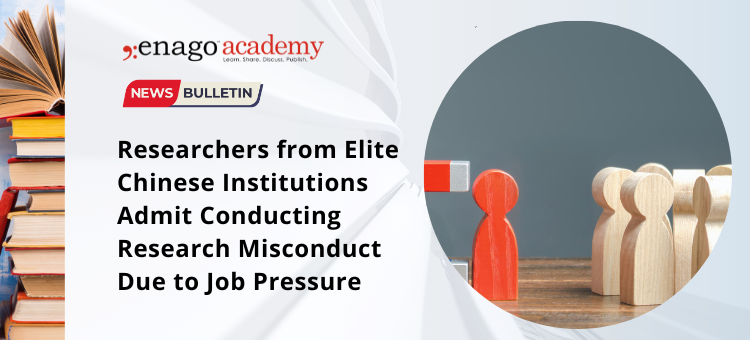Researchers from Elite Institutions in China Admit Committing Research Misconduct Due to Job Pressure

The growing number of research retractions in Chinese academia has gained significant global attention. Interviews with researchers at top Chinese universities have revealed the ethical problems they face. A study conducted at three elite universities in China received responses from 30 faculty members and 5 students. The findings reveal that some academics engaged in unethical practices to maintain their positions in China’s prestigious Double First-Class Initiative.
Double First-Class Initiative
The Chinese government introduced the Double First-Class Initiative in 2015. It aims to elevate universities and disciplines to “world-class” status though increased funding and international recognition. Universities selected for the program receive additional resources, whereas those that do not meet expectations are removed. The study reported that researchers felt pressured to falsify data or engage in other forms of misconduct to meet targets and protect their jobs.
Pressure to Publish as Reason for Ethical Misconduct
The study participants further revealed the misinterpretation of the scheme’s goals by university decision-makers. This led to the rigorous setting of publishing criteria for academics. As a result, researchers were pressured to publish more articles in high-impact journals indexed in databases like the Science Citation Index.
Some researchers also admitted to resorting to unethical practices to meet the growing demands. This included using paper-writing services, data falsification, plagiarism, exploitation of students by not offering them authorship, and even bribing journal editors. One interviewee also confessed to purchasing access to an official archive and altering data to fit their hypotheses, while an associate dean downplayed research misconduct, emphasizing the primacy of publishing goals.
The Research Community Expresses Concerns
A part of the research community expressed concerns about the misery and guilt of these researchers. However, others cautioned against painting an overly negative picture of the Chinese program. They expressed differing opinions due to the small sample size of the study, resulting in biased findings due to the selective nature of the interview. Furthermore, over 140 institutions are a part of the program, and the study is based on interviews with staff from only three elite institutions. Although some researchers acknowledged the pressure described in the study, they argued that it does not reflect the entirety of the Chinese higher education landscape. Several researchers also emphasized the lack of education on research integrity.
A recent study conducted by Enago Academy on Research Ethics revealed that almost 31% of researchers believed a lack of awareness of ethical standards to be the primary reason for limiting ethical compliance in research. Additionally, approximately 26% researchers reported ‘Pressure to Publish’ as the major factor limiting ethical compliance in research. This calls for a need to reassess current publishing strategies to promote an ethical future of research.
Are you interested in reforming current publishing norms to address ethical misconduct and the impact of retractions? Participate in our global survey now!
Despite the differing opinions, the study highlights the complex challenges faced by researchers under pressure to achieve ambitious publishing goals. The Chinese government has implemented measures to address research misconduct, including defining violations and specifying penalties.
Addressing these issues requires a comprehensive approach that considers the broader institutional context and incentives created by national policies. By promoting research integrity though adequate support and resources, Chinese universities can achieve their goals without compromising ethical standards.









